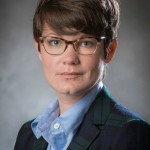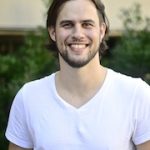Meet the 2017-2018 members of the Committee on the Status of Graduate Students in the Profession! As CSGSP members, we are appointed via nomination and serve for a three-year period. We are graduate students and recent PhDs at various points in our graduate school careers, and we are dedicated to advocating for graduate students.
On 12-13 October 2017, the CSGSP held its annual organizing meeting. During that meeting, our agenda included:
- Providing campus updates to bring awareness to issues that graduate students currently face (including issues relating to labor and unionization, safety, and finances)
- Organizing panels and social events for grad students at the 2018 convention in New York (this year’s panels include: “Interviews in the Digital Age,” “Possibilities of Public Humanities,” and “Precarity and Activism”)
- Proposing committee panels for the 2019 convention in Chicago (CFP’s forthcoming!)
- Meeting with MLA executive director Paula Krebs to discuss graduate student concerns and the resources that MLA can offer them
- Planning future projects to benefit grad students and to advocate for their needs
Please feel free to reach out to us individually or at csgsp@mla.org with your questions or concerns. You can also connect with us on twitter (@MLAgrads) or meet us in person at the MLA convention where we host the Grad Lounge!
2017-2018 CSGSP Members:
Barbra Chin (co-chair) is a Ph.D. candidate and full-time writing instructor in the Department of English at Howard University in Washington, D.C. Her research explores notions of identity as they relate to nation and community, race (and mixed race), and gender in 19th and early 20th century African American literature, particularly in the writings of Nella Larsen. As a member of the CSGSP, Barbra is committed to providing a voice for and representing the HBCU graduate experience and the unique concerns that attend it. (Twitter: @bchin_19)
Lisa Chinn (co-chair) is a Lecturing Fellow in the Thompson Writing Program at Duke. Her research focuses on 20th-century American poetry, particularly post-1945 poetry and its intersection with print and sound cultures. When she’s not researching, writing, or teaching, she is learning how to play the upright bass, likes to run in her Old North Durham neighborhood, and enjoys good cuisine. (Twitter: @LisaChinn1)
Meredith Farmer is an Assistant Teaching Professor of English and the Center of Energy, Environment, and Sustainability at Wake Forest University. Her current project, Melville’s Leaks: Science, Materialism, and the Reconstitution of Persons, is under advance contract with Northwestern University Press. She is also at work on two editorial projects: a collection titled Rethinking Ahab: Melville and the Materialist Turn and a special issue of Leviathan on “Melville and Materialisms.” Her next project will be focused on the “American Storm Controversy,” hurricanes, and attempts to model climate change in the nineteenth century. As a member of CSGSP she is especially passionate about work to support student and adjunct laborers, raising awareness about different kinds of public humanities projects, and developing a revised and visible set of best practices for search committees in the era of online interviews. (Twitter: @farmerm)
Andrés Rabinovich is a Ph.D. student in the Department of Spanish and Portuguese at the University of Kansas. His research revolves around the representation of sports in Contemporary Latin American Southern Cone with a focus on the link between sports and affect as it pertains to political agency. He was both first-year representative as well as president of the Graduate Student Association of Spanish and Portuguese at the University of Kansas. In the CSGSP, Andrés plans to use his experience in student organizations to represent graduate students across the country and to give a voice to international graduate students in North American academia. (Twitter: @AndresRabinovi2)
Kristina Reardon is the associate director of the Center for Writing at the College of the Holy Cross, where she teaches composition courses, runs the peer writing center, the Writer’s Workshop, and does faculty outreach on teaching writing. She is also a Ph.D. candidate in comparative literary and cultural studies at the University of Connecticut. Her dissertation focuses on the use of comedy in World War I era writing, and her composition work focuses on translation as a lens for student reflection on the writing process.
Niko Tracksdorf received his Ph.D. in Literatures, Cultures and Languages from the University of Connecticut in 2017. He is currently the Coordinator of the German International Engineering Program (IEP) and part-time faculty member in German at the University of Rhode Island. His research interests include interdisciplinary language teaching, intercultural competence, and online and blended learning. Working for dual degree program in German and Engineering, his research and teaching currently focus on the intersections of language and culture education and STEM.
Christine “Xine” Yao is currently a SSHRC postdoc in English at the University of British Columbia and starting in September 2018 she will be a Lecturer in English at University College London. She earned her PhD in English, American Studies, and Feminism, Gender, and Sexuality Studies from Cornell University. She is working on a book project about the racial and sexual cultural politics of unfeeling in nineteenth-century America. In her advocacy work Xine is especially interested in the precarity of graduate student labor and issues facing women and people of color in the university. She’s the co-host of PhDivas, an iTunes podcast about academia, culture, and social justice across the STEM/humanities divide. (Twitter: @yao_christine)







